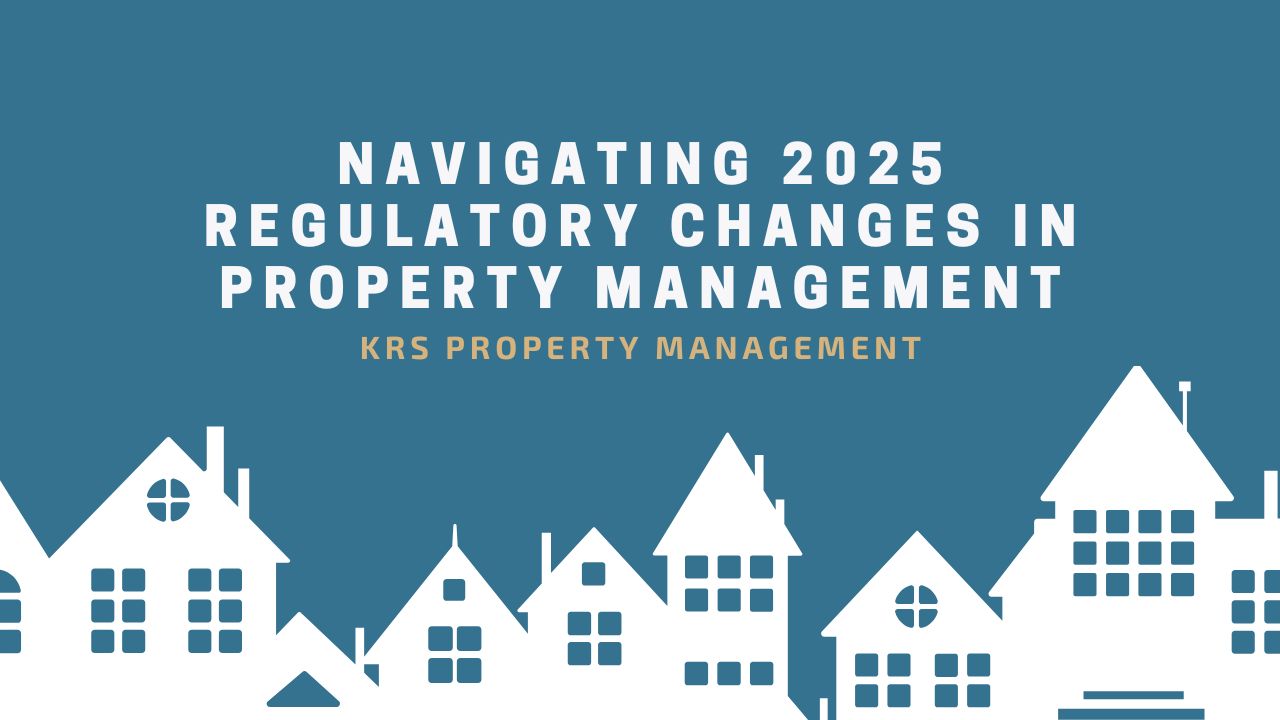
Key Takeaways
Stay Ahead of Rent Control Rules: 2025 brings new statewide and local rent caps, requiring landlords to closely monitor updates to remain compliant.
Tenant Protections Are Expanding: Longer notice periods, stricter eviction procedures, and transparency requirements mean landlords must update leases and communication practices.
Sustainability Matters: Energy efficiency standards are becoming mandatory in many states, and proactive upgrades can boost property value while offering tax incentives.
The real estate sector continues to evolve, and 2025 marks a pivotal year for property owners and managers. With new laws now in effect, landlords must stay proactive to remain compliant and protect their investments.
From rent control adjustments to energy efficiency mandates, these regulatory updates are reshaping the rental landscape in meaningful ways.
In this guide from KRS Holdings, we’ll break down the key changes and show you how to adapt your property management strategy for long-term success.
Rent Control Updates: Navigating New Caps
To combat housing affordability challenges, many states have revised their rent control frameworks. In Oregon, for example, the statewide cap for 2025 permits annual rent increases of up to 10% for most rental units.
These limits are designed to protect tenants from sudden hikes while still allowing landlords to cover rising operational costs.
However, it's important to note that local jurisdictions may enforce tighter restrictions beyond the statewide rules. Cities with acute housing shortages or strong tenant advocacy movements could impose stricter rent ceilings.
As a result, landlords must remain vigilant, closely monitoring both state and municipal housing policies to avoid noncompliance and potential penalties.
Strengthened Tenant Protections
This year also ushers in a broader wave of tenant-centered regulations aimed at promoting equitable housing practices.

Among the most significant are reforms to eviction procedures, including longer notice periods and expanded rights for renters using government assistance.
In several states, landlords are now required to give as much as 90 days' notice when choosing not to renew a lease. These extended timelines are intended to provide tenants with greater housing security and enough time to secure new accommodations.
For landlords, this means carefully revisiting existing protocols. Lease renewal notices, eviction documentation, and communication processes should all be reviewed and updated to reflect the latest legal standards. Failing to adhere to these requirements could result in fines or legal action.
Transparency: A Regulatory and Competitive Priority
Increased transparency has become a defining theme of rental regulations in 2025. New laws are requiring landlords to be more upfront in their interactions with tenants, especially when it comes to costs and conditions.
Many jurisdictions now mandate that landlords supply itemized receipts for any deductions made from security deposits, along with clear explanations for rent adjustments or policy changes.
In some areas, upfront disclosures about property conditions, fees, or maintenance procedures are also compulsory.
A recent survey by the National Multifamily Housing Council revealed that 65% of tenants favor property owners who demonstrate transparency in their management approach.

This trend highlights the dual benefit of compliance: not only does it fulfill legal obligations, but it also strengthens tenant relationships and supports retention.
Sustainability and Energy Efficiency Standards
As climate change and environmental impact become growing concerns, states are rolling out tougher sustainability requirements for rental properties. California is leading the charge, with mandates requiring landlords to implement energy-saving upgrades in certain types of buildings.
Required improvements may include updated HVAC systems, LED lighting, smart thermostats, and water-efficient fixtures.
Beyond satisfying legal expectations, these eco-friendly enhancements can also make properties more attractive to modern, environmentally conscious renters.
Additionally, landlords who comply with new energy efficiency standards may be eligible for tax season breaks or financial incentives.
By investing in sustainable upgrades now, property owners can improve their market positioning while reducing long-term utility and maintenance costs.
How Landlords Can Stay Compliant in 2025
Adjusting to the shifting regulatory environment may feel overwhelming at first, but a few strategic steps can ease the process and keep you ahead of the curve:
Monitor Legal Developments Regularly: Stay informed by subscribing to reputable real estate publications, attending industry webinars, and following updates from local housing authorities.
Update Lease Agreements: Make sure your lease and rental agreement templates incorporate current legal requirements, including notice periods, disclosures, and any applicable rent control provisions.

Work With Professionals: Consulting with legal experts or experienced property managers can help ensure your documentation, procedures, and communication practices align with new laws.
Document Everything: Maintain detailed records of all regular communications, rent adjustments, maintenance requests, and financial transactions. Documentation not only supports transparency but also provides protection in the event of a dispute.
Educate Tenants: Clearly communicate changes in policies or lease terms to tenants and be available to answer questions. Open communication reduces misunderstandings and builds trust.
Benefits of Working With a Property Management Company
With 2025 ushering in sweeping regulatory changes, the value of a professional property management company has never been clearer.
A trusted management partner takes on the burden of tracking new laws, updating leases, and ensuring compliance with notice periods, rent control rules, and disclosure requirements. This reduces your legal risk while keeping your properties aligned with current standards.
Beyond compliance, property managers provide market expertise to help you set competitive rental rates, recommend upgrades that boost tenant appeal, and maintain positive tenant relationships through consistent communication.
They also streamline operations by handling rent collection, maintenance coordination, and documentation, giving you peace of mind and more time to focus on long-term investment goals.
Ultimately, working with a property management company transforms regulatory challenges into opportunities—helping you stay compliant, protect your investment, and maximize returns in an evolving rental landscape.
Bottom Line
The 2025 regulatory changes are reshaping how landlords manage rentals, from rent control limits and tenant protections to transparency requirements and sustainability mandates.
While these updates may feel complex, they also present opportunities to strengthen compliance, improve tenant relationships, and enhance property value.
By staying informed, updating your practices, and leveraging professional property management support, you can confidently adapt to the new landscape.
At KRS Holdings, we specialize in helping landlords navigate evolving regulations with ease. From lease updates to compliance oversight, our team is here to protect your investments and position your properties for long-term success in today’s changing market.






